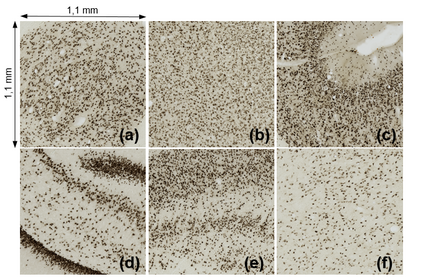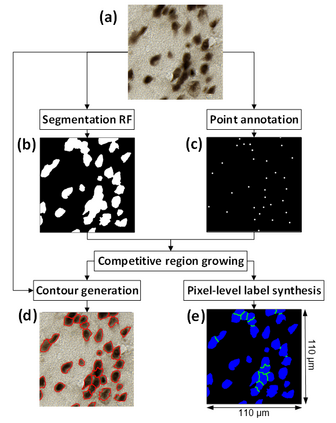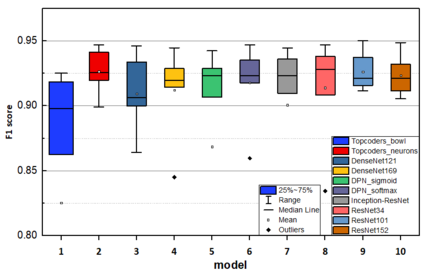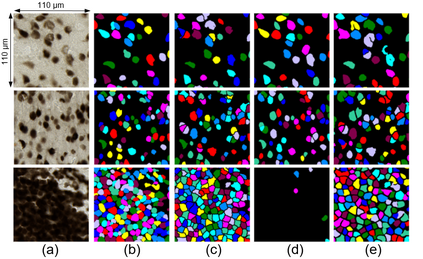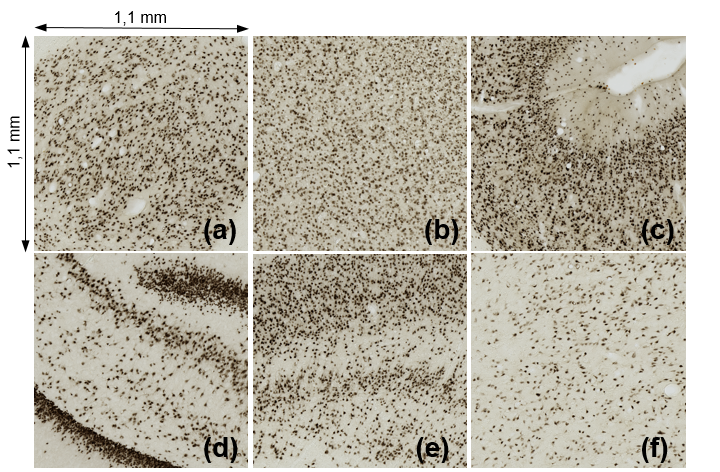Cell individualization has a vital role in digital pathology image analysis. Deep Learning is considered as an efficient tool for instance segmentation tasks, including cell individualization. However, the precision of the Deep Learning model relies on massive unbiased dataset and manual pixel-level annotations, which is labor intensive. Moreover, most applications of Deep Learning have been developed for processing oncological data. To overcome these challenges, i) we established a pipeline to synthesize pixel-level labels with only point annotations provided; ii) we tested an ensemble Deep Learning algorithm to perform cell individualization on neurological data. Results suggest that the proposed method successfully segments neuronal cells in both object-level and pixel-level, with an average detection accuracy of 0.93.
翻译:细胞化在数字病理图象分析中具有关键作用。深层学习被视为一种有效的工具,例如分解任务,包括细胞个化。然而,深层学习模型的精确性依赖于大规模无偏倚的数据集和人工像素级说明,这是劳动密集型的。此外,深层学习的大部分应用都用于处理肿瘤学数据。为了克服这些挑战,i)我们建立了一个管道,以合成像素级标签,只提供点说明;ii)我们测试了一套共同深层学习算法,以对神经学数据进行细胞个化。结果显示,拟议的方法在目标级和像素级都成功地分解神经细胞,平均检测精确度为0.93。

